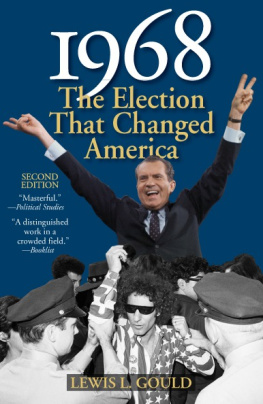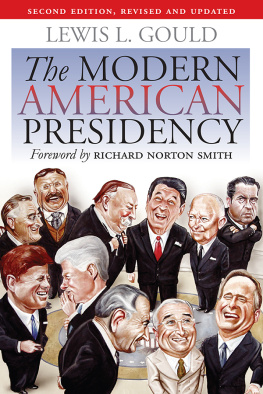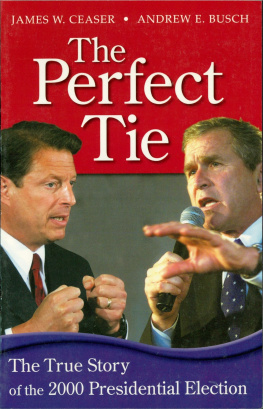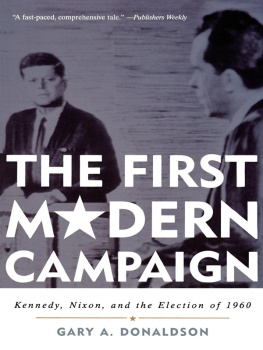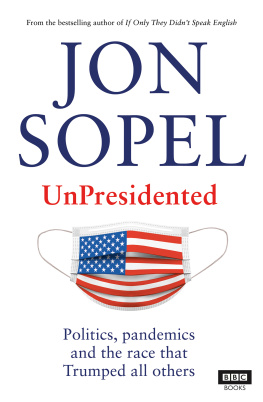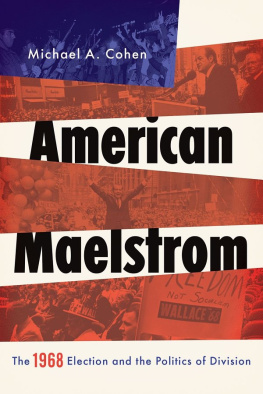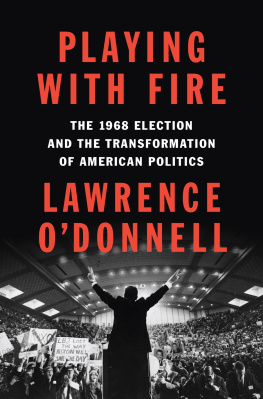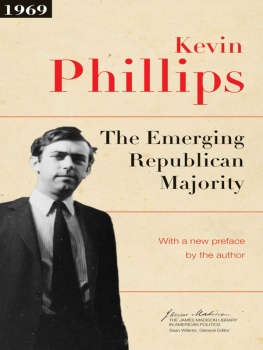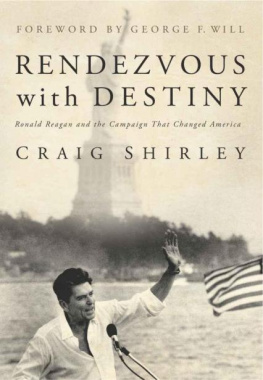1968: The Election
That Changed America
1968:
THE ELECTION
THAT CHANGED
AMERICA
Lewis L. G ould
Second Edition
The American Ways Series
IVAN R. DEE Chicago
1968 : THE ELECTION THAT CHANGED AMERICA. Copyright 1993 , 2010 by Lewis L. Gould. All rights reserved, including the right to reproduce this book or portions thereof in any form. For information, address: Ivan R. Dee, Publisher, 1332 North Halsted Street, Chicago 60642 , a member of the Rowman & Littlefield Publishing Group. Manufactured in the United States of America and printed on acid-free paper.
www.ivanrdee.com
Library of Congress Cataloging-in-Publication Data:
Gould, Lewis L.
1968 : the election that changed America / Lewis L. Gould. nd ed.
[eagle logo].
p. cm. (The american ways series)
Includes bibliographical references and index.
ISBN -- 56663 -- (pbk. : alk. paper)
. PresidentsUnited StatesElection 1968 .. Elections
United StatesHistoryth century.. United StatesPolitics and
government 1963 1969 . I. Title.
JK 1968 1968
. 0923 dc 2009049669
Preface to the First Edition
By the 1990 s public disenchantment with politics in the United States had reached intense levels. Huge budget deficits, a persistent economic slowdown, and unmet social problems focused popular unhappiness on the political system and its flaws. A generation of divided government, in which Republicans dominated the presidency while Democrats controlled Congress, had produced an apparent gridlock in Washington which stalled constructive responses to the nations needs. Angry voters flirted with third parties or grew apathetic toward politics altogether.
The origins of these problems extended back into the mid- 1960 s when the Democratic party waged an unpopular war in Vietnam, pursued a Great Society in domestic affairs, and dealt with long-deferred issues of civil rights for black citizens. By 1968 , however, the war in Vietnam had become stalemated. Liberal programs to improve the lives of the poor and minorities provoked bitter opposition among white Americans. As a result, the presidential election of 1968 became a contest in which the passions and violence of the society surged into the political arena. Assassinations, urban rioting, and war added new volatility to national politics.
The outcome of the election left no one fully satisfied. The Republicans put Richard Nixon in the White House, but the Democrats retained control of both houses of Congress. Radicals were frustrated that the nation had not embraced social revolution. Conservatives resented the residual strength of liberal ideas. The issue of race had not been addressed nor its effects diminished. A close election had left things much as they had been when the year beganor so it seemed on the surface.
In fact the 1968 election proved to be a watershed event in American politics. Republicans used the skills they brought to Nixons campaign to create an ascendancy in presidential politics. Democrats, divided and torn after 1968 , emerged as only crippled challengers for the White House in the 1970 s and 1980 s. Bitterness over racial issues and discord on the Vietnam War continued to shape national affairs. The events of 1968 changed the way Americans felt about politics and their leaders. An erosion of confidence in American institutions began that has not yet reached a conclusion.
Soon after Nixon took office, books appeared to explain the trauma through which the country had passed. Since those early accounts, historians and journalists have reexamined 1968 , most often in the context of the rebellious college students who rallied to liberal Democrats such as Eugene McCarthy and Robert F. Kennedy. Few authors have considered the political history of the entire election, including the crucial events of the last month of the campaign. The analytic narrative that follows provides an overview of the election based on the many published works on the campaign and unpublished materials at the Lyndon B. Johnson Library.
Like most Americans in 1968 , I experienced the events of that year through television. It was a time of recurrent shocks, intense emotions, and passionate judgments. Twenty-four years later I have tried to examine the election in a calm and judicious spirit. During a troubled time, fallible men and women made decisions that changed the nation. This book considers the reasons for actions and events that occurred during the critical 1968 election and the lasting consequences for American politics and society.
A Note on the Second Edition, 2010
In the more than sixteen years since 1968 first appeared, Bill Clinton, George W. Bush, and Barack Obama have occupied the White House. The Republicans recaptured Congress in 1994 and the Democrats did so in 2006 . The rise of international terrorism and the events of September , 2001 , the menace of global climate change, and the intense polarization of national politics have overshadowed the historical roots of the present condition of the United States. Yet the continuing readership of this book as a reliable, brief account of the election of 1968 suggested that an updated edition of the narrative would be useful for todays students of this significant moment in national politics.
I have left the basic structure of the book as it was in 1993 . The prose has been tightened in spots; some quotations from figures such as Senator Edward M. Kennedy and Arthur M. Schlesinger, Jr., have been inserted; and errors have been corrected. The conclusion has been reshaped to reflect changes in American politics since the election of Bill Clinton in 1992 and to explain what happened to the main figures in the presidential race of 1968 . The recommended reading has been updated to incorporate books that have appeared since the first edition.
Acknowledgments
I want to thank John Braeman and Ivan Dee for inviting me to contribute to the series of which this volume is a part. Both of them also offered helpful and thoughtful criticisms of earlier drafts. At the Lyndon Baines Johnson Library, Linda Hanson and Claudia Anderson provided their customary efficient and timely assistance. David Humphrey, then a staff member of the Library, directed me to information on the Vietnam negotiations that proved important for the final chapter.
My interest in this election grew out of an essay on Lyndon Johnson and the Democratic party that Robert A. Divine asked me to write. The late Herbert F. Margulies of the University of Hawaii provided informed and incisive comments on the entire manuscript. Students in seminars on Lyndon Johnson and his times helped me work out ideas on the politics of the 1960 s. I owe special thanks to Thomas Clarkin, Byron Hulsey, Nancy Beck Young, and Mark Young for their kind assistance. Karen Gould was a constant source of encouragement through her good spirits and personal courage.
l. l. g.
January 2010
Austin, Texas
Introduction
The presidential election of 1968 was a decisive event in twentieth-century American political history. After its victory in that contest, the Republican party dominated the White House through 2008 , winning four of the next five presidential races by wide margins in the popular and electoral votes. After eight years of Bill Clinton and the Democrats, the Grand Old Party rebounded with the narrow victories of George W. Bush in 2000 and 2004 . Only with the triumph of Barack Obama in 2008 did the Republican ascendancy appear to have come to an end.
For the Democrats, the picture at the presidential level turned bleak after 1968 . In the twenty-four years after that contest, the Democrats were successful only in 1976 when a Southerner, Jimmy Carter, headed their ticket. Carters narrow victory over Gerald Ford, a weak candidate in his own right, did not herald a Democratic revival. During the two decades that followed the 1968 race, Republicans set the agenda for American political life. The result was an ascendancy of conservative ideas and programs in the creation of national policy.

